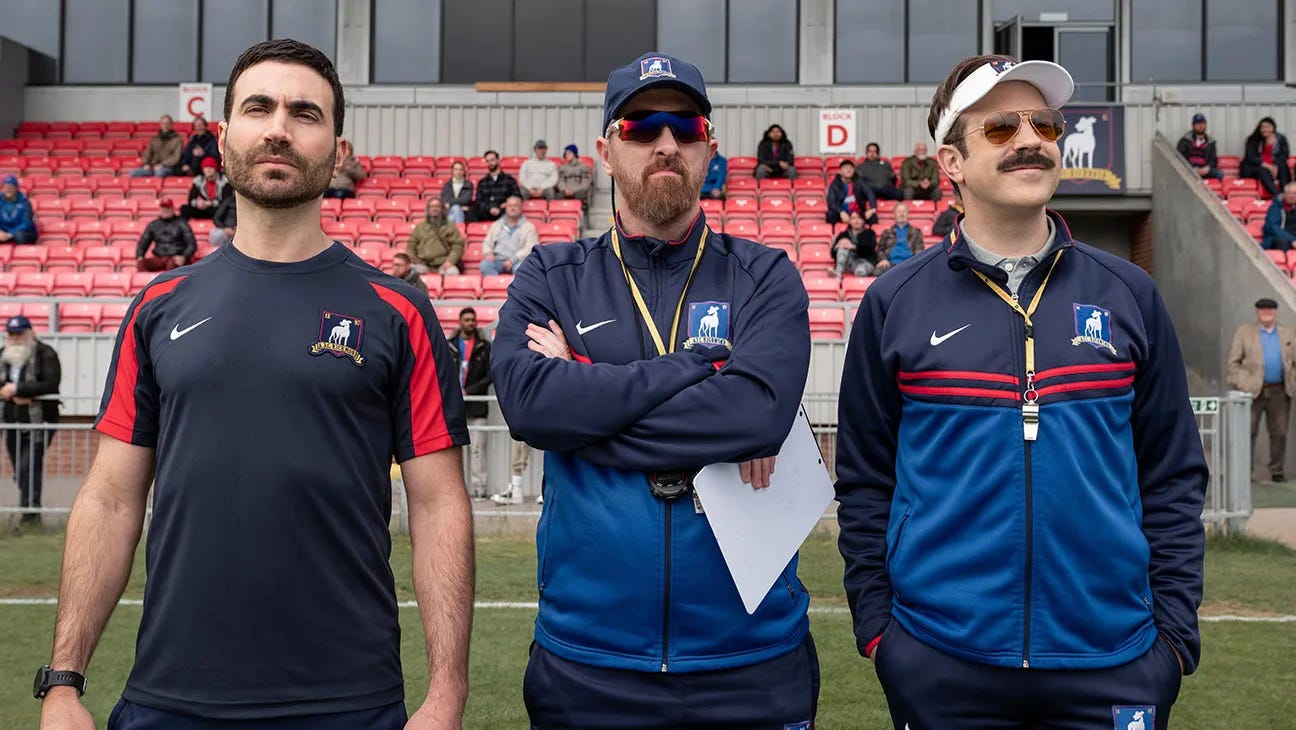The Rehearsal is TV’s Most Provocative Show About Empathy
The show’s central claim is as simple as it is profound: empathy is hard.
When I first started teaching classes about the concept of empathy, I noticed something that surprised me. It was always the students who genuinely valued empathy who were the most emotionally equipped to navigate complex issues.
At first glance, this might fly in the face of the prevailing cultural narrative that empathy is for the soft. While it’s true that those who self-identified as empathetic were often tenderhearted, it quickly became clear to me that this propensity for deep feeling didn’t render them helpless. In fact, it was just the opposite. The most empathetic people were unafraid of putting themselves in someone else’s shoes. They not only saw understanding the full range of human experience as important, they were also completely unconcerned that it would shift their own moral compass. Their sense of self was not fragile. It was strong.
I’ve been thinking about this observation as we continue to navigate a culture that is deeply ambivalent about empathy, with many criticizing empathy and others misunderstanding it. Series like Ted Lasso, Somebody, Somewhere, and The Pitt are often framed as powerhouses of empathy, when they are more rightly characterized as warm-hearted looks at good people striving to help each other. These shows make us feel warm fuzzies because they are digestible looks at kindness. But while comforting narratives can feel like an antidote for doomscrolling, they don’t always encourage viewers to practice their empathetic skills.
Back in 2018, I wrote that BoJack Horseman was the most empathetic show on television precisely because it illustrates the complexities of empathy through its multifaceted look at deeply flawed characters. Today, that empathetic legacy lives on in the smart, funny, and deeply strange world of Nathan Fielder’s The Rehearsal, the most provocative and compelling look at empathy on television today.
The show’s central claim is as simple as it is profound: empathy is hard. The premise is this: Nathan Fielder plays a version of himself who tries to help others navigate the uncertainty of life by helping them to rehearse scenarios ahead of time. The rehearsals are bizarre and hilarious. In one plot line, Nathan works with a woman who is deciding whether she wants a family and moves her to a house in upstate NY so that she can practice what the emotional experience of childrearing would feel like with a series of child actors and a robot baby. In another, Nathan asks pilots to act as judges for a fake music concert so that they can get more confident raising safety concerns during flights.
Like other cringe comedies, The Rehearsal revels in discomfort and part of the joy of watching the show is simply seeing what absolutely crazy scenario Fielder is going to come up with next. But the show’s true interest isn’t in pranks, but the human spirit, as we watch Nathan try and fail to achieve the kind of genuine human connection he desperately wants.
In one of the most moving scenes in Season 2, we listen as Nathan laments his inability to effectively perform sincerity in a way that makes a person more than a number, before watching him try to strike the right emotional cord with teenage girl who is auditioning for his fake music contest. He listens to her play guitar earnestly, before letting her know that she will not be moving forward in the competition. The young hopeful is on the cusp of tears despite Nathan giving a heartfelt affirmation of her potential. When she exits the room, she is invited to give feedback on Nathan’s feedback, rating its usefulness on a scale of 1-10. Nathan eagerly runs out to see how she has judged him. He nervously unveils the quickly scrawled result, revealing either a 6 or a 9, depending on how you hold the paper.
Later in the season, we watch as Nathan tries to follow in the footsteps of a pilot he admires, only to suddenly realize that no matter how closely he tries to replicate the life presented in his subject’s memoir, there are still things about his internal emotional world that remain opaque. To handle this murkiness, Nathan begins to insert his own interpretation, theorizing hilariously that the song “Bring Me To Life” by the band Evanescence, played a much bigger role in the story than the pilot himself ever suggested.
Both storylines are not only striking, tender, and funny, but they also ask probing questions about the nature of empathy and whether our attempts at human connection are really an elaborate performance. While The Rehearsal often pokes gentle fun at the people participating in Nathan’s elaborate schemes, the show isn’t interested in punching down. Nathan clearly loves the people he clumsily tries to help. It’s his own struggle for genuine human connection that is the quiet heartbeat of the show.
This gulf between what a person feels and how they can effectively convey it is a central theme in empathy studies. Do we need to literally feel what someone else feels to connect with them? Do the social niceties we use to navigate emotion convey sincerity or is simply an elaborate social performance that some people are naturally better at faking than others?
I find these questions eternally fascinating, which is probably one of the reasons I think The Rehearsal is so captivating. But another reason I love the show is that I identify with Nathan’s empathy anxieties. I think a lot about what other people might be feeling. I ruminate on my social interactions, and I spend a lot of time wondering how other people feel. The longer I study empathy, the more I worry about whether I am getting empathy right.
Perhaps that’s why I’m so resistant to portraits of empathy that seem easy and why Fielder’s show strikes me important. In the world of The Rehearsal, every attempt at connection, no matter how surreal or quirky or cringe, matters. It’s a reminder that without some empathy failures, we might not be able to connect at all.







